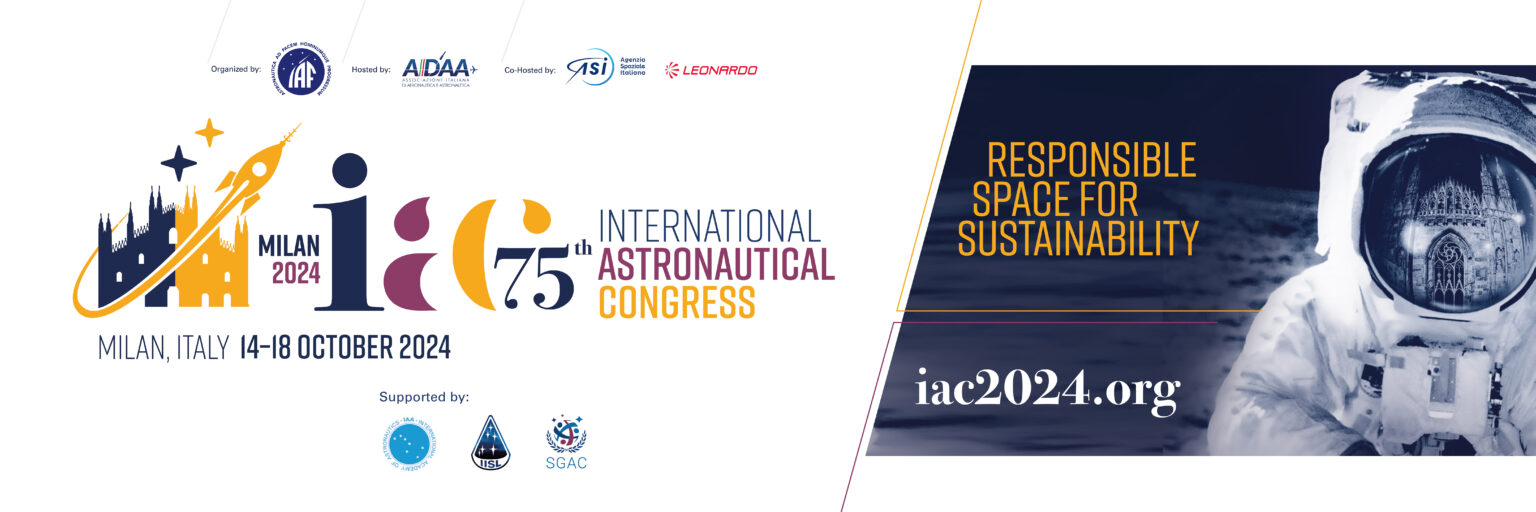Outer space is an incredible resource for our society and economy, but its exploration and use come with responsibility. Italy has a long history in space activities and over the years has strengthened its position in the space sector, becoming a global space power. It is also one of the few countries capable of covering the entire space value chain with its industry, and it is at the forefront of the challenge of sustainability in space and space for sustainability. Therefore, after sixty years since the beginning of national space activities, Italy proposes the motto “Responsible space for sustainability” to serve as the fil rouge of the 75th International Astronautical Congress (IAC) that will take place in Milan from 14 to 18 October 2024. The aim is to discuss how to keep outer space a safe, secure, and sustainable environment, open to exploration, peaceful use, and international cooperation in the interest of our planet, present and future generations, and all nations, regardless of their level of development and without discrimination of any kind, in accordance with the principles and norms of international space law.
This motto is a two-faced Janus and leads us to a dilemma. On the one hand, space-based technologies are crucial for our daily lives, society, sustainable future, as well as the global economy and trade and are an essential tool in the achievement of the United Nations Sustainable Development Goals. Space-based technologies, applications and services are indeed essential for several sectors, including agriculture, fishing, transport, telecommunication, energy, finance, urban development, climate, and environmental monitoring. On the other hand, the extensive use of space technologies is associated with risks and can be a source of vulnerability, both in space-faring nations and more broadly all countries heavily relying on it. The Earth’s orbits are a finite resource and are increasingly used by States, international organisations, and private operators. Additionally, the growing complexity of space operations, the emergence of large satellite constellations, the proliferation of space debris, and the increased risks of collision and interference between space activities, including astronomical missions, endanger the safety and sustainability of space activities.
The sustainability of outer space activities is of interest and importance to both space-faring and emerging space nations, particularly developing countries. Several are the initiatives put in place to minimise the environmental impact of space assets’ manufacturing and launch, as well as to foster the use of renewable resources and maximise the reusability or reuse of space assets. Furthermore, the consolidation of a regulatory framework, including international standards and best practices, that is up-to-date with the latest developments and emerging needs of space activities and operators, will further contribute to preserving outer space and ensuring future generations can continue to benefit from it.
The IAC 2024 Milan, under the motto Responsible Space for Sustainability, intends to address the mentioned issues related to the use of space-based assets for sustainability and the sustainability of outer space activities in order to propose possible solutions.

P.le Aldo Moro, 5 – 00185 Rome
outerspacelaw.sapienza@uniroma1.it
© 2023 Outer Space Law Sapienza
Developed by Giuseppe Liuzzi